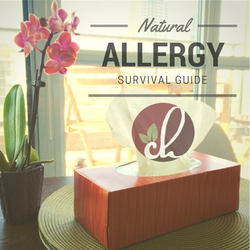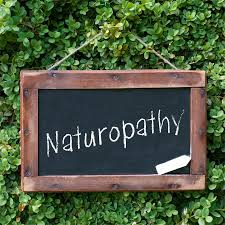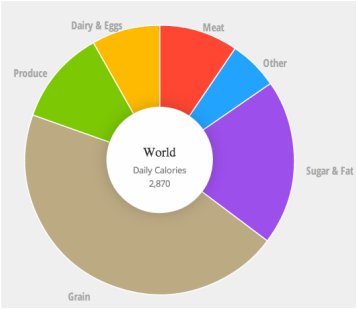A Naturopathic Celebration
7/6/2015
By: Courtney Holmberg, ND  July 1st 2015, marks a big day for all Naturopathic Doctors as they not only do get to celebrate the birth of our great nation, but also a huge step forward for the profession of Naturopathic Medicine in Ontario. The Naturopathic Profession transitions from the Drugless Practitioners Act to the Regulated Health Professions Act, which has been underway for nearly two decades. Today, Naturopaths join nearly 300,000 other health professionals as equal partners in the management and care of Ontarians' health. Today, Naturopathic Doctors in Ontario gain the official DR. title under the Naturopathy Act, 2007. This would not have been possible without the advocacy of patients who participated in the email campaigns and who spoke the their MPPs and the Ministry of Health about the importance of Naturopathic Medicine to their health care. Your efforts have helped not only advance the profession, but also ensure that there were no limitation to the scope of practice for Naturopaths in Ontario, and the profession thanks you. A more detailed overview of the laboratory testing available to naturopathic doctors, and the list of restricted substances may be accessed by clicking the associated links. A NOTE TO MY PATIENTS: Changes to scope means a new set of regulations and examinations. Be assured that I am working hard to complete all necessary examinations to ensure continuity of care to my patients. For the time being, intramuscular injections will not be offered within the clinic, but may still be available for self injection if required. I look forward to a future where holistic and allopathic medicine functions in complement to one another, as we are one step closer to inter-professional collaboration. Please stay connected for more information as it becomes available. See the OAND's new release here. For any outstanding questions, you may contact me here. Here's to stepping forwards, together. Sincerely, Courtney Holmberg, ND
33 Comments
By: Courtney Holmberg, ND  Allergy season. With the snow melting, its fast approaching, and so are the dreaded symptoms of sneezing, congestion, itchy eyes/throat, headaches... shall I go on? For those who suffer from seasonal allergies, they understand me when I say it's near impossible to function on a day to day basis under the fog of these symptoms. Believe me, I know... I used to suffer from all of the above. The good news is, it doesn't have to be this way. Simply put, seasonal allergies are an over-reaction of the immune system, and theres more we can do than just handing it a tissue. Its time to ditch the drowsy decongestants, for good. WHAT ARE ALLERGIES? An allergy, or hypersensitivity, develops when the immune system reacts to something in our environment that was once otherwise harmless, but has now been flagged as problematic, or an "allergen". These reactions are acquired, meaning the first time you're exposed to it, you develop the antibodies, and the second time you're exposed, you experience the symptoms. Believe it or not, the symptoms of seasonal allergies, medically termed "allergic rhinitis", are a result of your immune system in action, and not the allergen itself. White blood cells over-actively release an antibody called IgE, as well as histamine, which both help the immune cells to rid of the allergen its deemed as harmful. WHY DO ALLERGIES HAPPEN? Allergies can usually be attributed to two factors - heredity, and the environment. Age, sex, race, and family history are correlated to the odds of developing allergies. The modifiable risk factor, however, seems to be our environment. Research shows children who are not breast fed, or who are not exposed to germs in early childhood have a higher incidence of allergy development, mostly because their immune systems never learnt to develop a balanced response. TOP 5 SURVIVAL TIPS 1. STOP ALLERGIES BEFORE THEY START (NEW MOMS - this ones for you) Research confirms that appropriate use of probiotics, particularly the strain of lactobacillus rhamnosus (both during pregnancy & in infancy) can influence and enhance the immune system response, and decreasing the risk of atopy [1,2]. Furthermore, its crucial for children to develop a healthy immune system. Breast feeding passes along some of the immunoglobulins you've developed over the years - your breast milk is natures best vaccine! And lastly, the hygiene hypothesis suggests that our world of sterility is harming our immune systems ability to learn what's harmful and what's not. So let your kids eat dirt sometimes, don't smother them in hand sanitizer, and most of all, don't suppress mild fevers! Fevers are the body's way of creating an optimal environment for immune function, so instead, monitor, support with fluids, and ride them out! 2. PROBIOTICS Even in adulthood, probiotics have a powerful influence on our immune systems. Not only do they enhance immunity, but they have the ability to regulate it. While the research is still developing, a dysbiosis of gut bacteria has been linked to allergies, and certain probiotic strains have immunomodulatory effects in favour of suppressing overactivity and supporting balance [3]. Use a billion count multistrain probiotic high is lactobacillus and bifidobacterium, especially in the 3 months leading up to allergy season. 3. VITAMIN C & BIOFLAVONOIDS Unlike the over-the-counter antihistamines that work to interfere with histamine after its produced, vitamin C actually works to PREVENT histamine production (bringing us closer to the root of the problem). To maximize the effects of Vitamin C, its best taken with bioflavonoids, in divided doses throughout the day. And while these two ingredients are found actively in berries & other fruits, not in the amounts needed to have an effect. However, adding more bioflavonoids to the diet is always a great approach!! Dosage: 2000-6000 mg daily in divided doses. Too much vitamin C can cause loose stools, and should not be used at this dose if diabetic or pregnant. 4. QUERCETIN My favourite to-go for allergy season, Quercetin is the bioflavonoid found in onions that makes you tear up! Again, this compound works to actually prevent the white blood cells from producing histamine, but to you, it will work much like an antihistamine. Dosage: you generally require large daily doses to have an effect ~ 1000 mg 3 times/day, and it should be commenced before the season even starts (so NOW!). There are theories on temporary mega-dosing with Quercetin to cure allergies, but talk to your Naturopath before trying this. 5. HOMEOPATHY There are some great and readily available homeopathic remedies out there for seasonal allergies, which are safe, non-drowsy alternatives to anti-histamines. Try Allium Cepa if you have very watery, irritating discharge running from the nose and feel better in cool open air. Euphrasia is great if your eyes are irritated and wont stop watering.Nux Vomica helps with the paraxyosmal sneezing and lots of drainage from the nose, as well as itching in the ears. Gelsemium is great for the extreme allergy suffers who feel overwhelmingly fatigued and debilitated, with lots of discharge. And of course - dont forget to limit your exposures. Dust on and under surfaces often, eliminate animal hair, change the air filters and pillow cases/sheets often, use hypoallergenic bed-ware, and have the carpets replaced or deep clean them bi-annually. MOST IMPORTANTLY - look for household mold - its a common cause of newly developed allergies. There you have it! Natural allergy treatments. I've done all of the above, and I'm happy to say that it not only relieved, but resolved my seasonal allergies. If you've got questions on how to apply this for yourself, or want to know more about natural allergy treatment, comment below! REFERENCES: 1. Allergol Int. 2014 Dec;63(4):575-85. Epub 2014 Jul 25. Effects of bifidobacterial supplementation to pregnant women and infants in the prevention of allergy development in infants and on fecal microbiota. 2. . Hauer, A. “[Probiotics in allergic diseases of childhood]” (article in German). MMW Fortschritte der Medizin 148, No. 35–36 (2006): 34–36. 3. Kramer MF, Heath MD. J Allergy (Cairo). 2014; Probiotics in the treatment of chronic rhinoconjunctivitis and chronic rhinosinusitis. TO BREAK, OR BREAK UP WITH, BREAD
12/5/2014
By: Dr. Courtney Holmberg, ND  Unless you've been living under a rock, I'm sure you've come across the ingredient every product is labelling free-of and every consumer is trying to avoid, gluten. One of the most common questions I'm asked with regards to dietary changes in practice is "should I be gluten-free too?" Stats say roughly 29% of households now have a family member who eats gluten free, and the "Gluten Free" label has become the top 5th label claim since 2011. But when asked, less than a third of respondents (including those who claimed to be gluten free) actually knew what gluten was and where it was found. So... what is it? Why is it bad for us? And what's with all the hype anyways? There are a number of articles circling the web on either side of the gluten fence. I'm not here to persuade you, but to inform you, so listen closely. FIRST OFF... WHAT IS GLUTEN? Gluten, by definition, is a family of proteins, made up of gliadin and glutenin that give bread its elasticity, or ability to rise. The family that seems to be problematic in today's diet is found in wheat, barley and rye. Dr. Tom O'Bryan, a certified gluten practitioner in the US, discusses the reason for its "toxicity". He states that although not everyone may show symptoms of sickness from eating gluten, the human body does not produce intestinal enzymes to break down the gliadin component of the protein [1]. For someone with celiac disease, this is a serious problem. Their immune system produces an anaphylactic response when exposed to the gluten protein (even in minute amounts)... much like someone would with a bee allergy, but in their gut. These people often carry a gene that predisposes them to this condition, and a gluten-free diet is absolutely essential for them. The interesting fact is that there has been a 4 fold (or 400x) increase in the incidence of celiac disease over the past 50 years [1]. That leaves us with the question.... WHY IS GLUTEN SUDDENLY A PROBLEM? Although wheat hasn't changed, and has been cultivated now for roughly 10000 years, its been only in the last 500 years that the actual content of gluten in wheat-based foods has gone up [2]. This is because gluten helps breads rise and holds food together, making for better texture, and is therefore actually added to foods already containing gluten. It can also be found in cosmetics, hair products, and household cleaners. Its important to note that although only 3% of the those with the celiac gene actually develop celiac disease, roughly 30% of the population carries the gene. So why isn't everyone developing celiac? Tom O'Bryan states this is due to the concept of loss of oral tolerance - meaning over exposure and weakened gut health due to environmental factors may be the key to expression of this gene [3] The World's Food Habits Chart in 2013, from vox.com
Naturopathic Medicine Naturally
8/21/2014
 What is a Naturopath? A Naturopath or Naturopathic Doctor is a highly trained health care practitioner that treats with natural medicines. A Naturopath combines modern scientific knowledge and standard medical diagnostics with a broad range of natural therapies, to address the root cause of acute and chronic illness. What does this mean for you? This means that you can see a Naturopath for a wide variety of health concerns and she can give you natural treatments that are more gentle on the body, but still effective. What will a Naturopath treat with? Treatments commonly used are in the form of Diet (Clinical nutrition) and lifestyle advice, Nutritional Supplementation, Botanical medicine (medicinal extracts from plants), Acupuncture and TCM (Traditional Chinese Medicine), Homeopathic medicine and Hydrotherapy. Have questions? Ask Me! Send an email to Dr. Sarah at [email protected] |
AuthorPosts inspired by the team at Platinum Health & Wellness. Archives
June 2025
Categories
All
|
|

 RSS Feed
RSS Feed